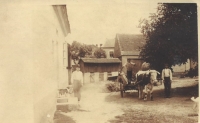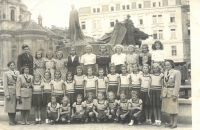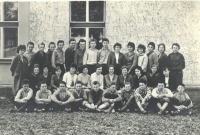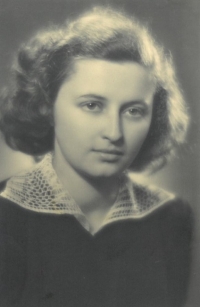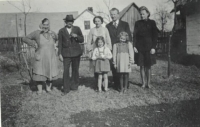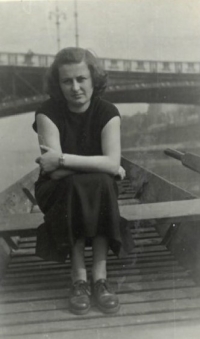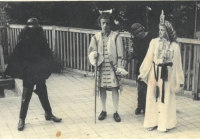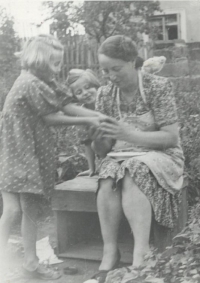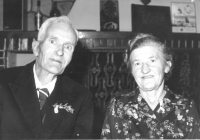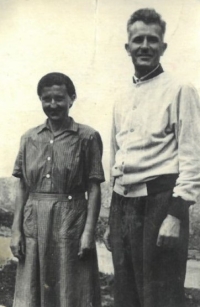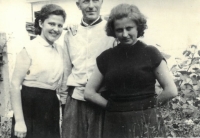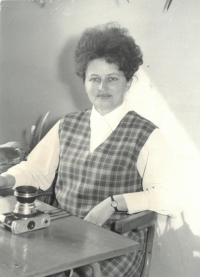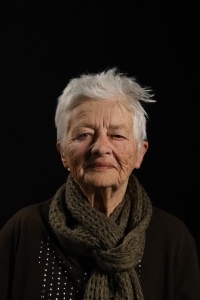She and her sister escaped Nazi shots, but the communist repression did not go past them

Download image
Marie Krásová, née Knoblochová, was born on 13 February 1934 in Mladá Boleslav and grew up in Kněžmost. Her family owned and ran a large farm. As a child she experienced a rich social life in the village and witnessed numerous rural traditions. During World War II, the family and other people from Kněžmost helped the partisans operating in the area. Prisoners of war and fleeing German soldiers passed through the village and shot at Maria and her friends. The witness’s father refused to join the cooperative farm in 1948, but the communists nationalised his property. Despite her bad cadre profile, Maria managed to graduate from grammar school and was admitted at the Faculty of Arts at Charles University in Prague, but her sister Věra was only allowed to study at a lower agricultural school. Marie interrupted her studies due to her pregnancy and marriage to Vítězslav Krása. Her husband was not allowed to complete his medical studies because he maintained close relations with the political prisoner and later editor of the Voice of America, Jaromír Zástěra. The couple had a daughter, Ingrid, and after a short maternity leave, the witness began working as a teacher. She worked at various schools near Kněžmost, for the longest time in Dolní Bousov. Despite the opposition of the communist secretary of the National Committee, she and her husband found housing in Bechov. During the Soviet invasion in 1968, she participated in protest meetings and joined a petition. Afterwards, as chairwoman of the trade union movement (ROH) at the Bousov school, she was present at the political screening of teachers. She never joined the party herself. After 1989, she and her sister regained the family land around Kněžmost in restitution. In 2022, she was still living in Bechov.
